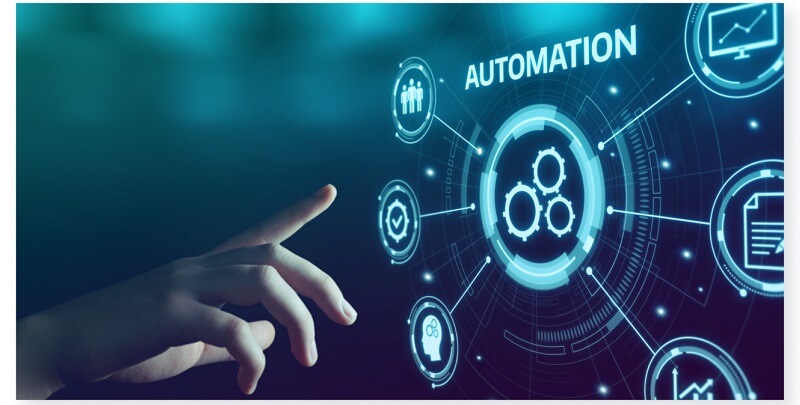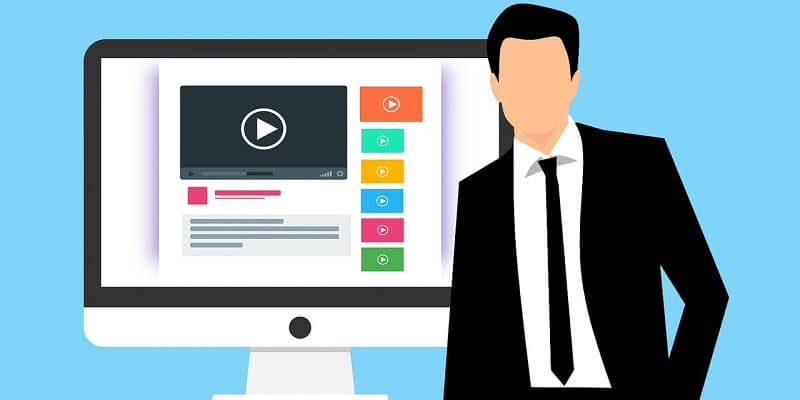The future of marketing is here, and it’s all about AI and automation. Learn how these technologies are reshaping the industry in this comprehensive guide.
Marketing has always been an adaptable domain, consistently evolving with advances in technology. Since the dawn of the digital era, organizations started exploring innovative marketing techniques, such as ways to get free domain email for business use, to connect with an expanded audience.
Now, the fields of marketing and advertising are being transformed by two powerhouses – Artificial Intelligence (AI) and automation. In fact, there are several AI marketing tools in the market already. Let’s explore how these two technologies will shape the future of marketing.
The Future of Marketing:
Tracing the Evolution
If we look back, the early stages of marketing heavily relied on direct communication channels and physical platforms, such as billboards, print advertisements, and telemarketing. However, the Internet revolution brought a significant shift toward digital marketing, opening doors for new strategies like enhancing team collaboration with custom communication apps.
The focus then turned toward SEO, content marketing, email marketing, and social media. So, we’ve now entered a phase where the future of marketing is being designed by AI and automation.
The Era Of Artificial Intelligence
AI is radically transforming the world of marketing. According to Salesforce’s Generative AI survey, 57% of tech leaders consider AI as a “game-changer.”
And rightfully so, AI brings unprecedented personalization, predictive powers, and extensive data analysis capabilities that humans can’t possibly achieve on their own. Here’s how AI is redefining marketing:
Customization
With the rise of customization, one-size-fits-all marketing tactics are losing their effectiveness. Modern consumers demand experiences shaped around their unique preferences and behaviors.
AI steps in by analyzing heaps of data to recognize patterns and behaviors. As a result, marketers can create personalized content, product recommendations, and ads, making it easier to Make Ads in 30 Seconds with Predis AI and augment the customer experience.
Predictive Analytics
AI shines brightly in the field of predictive analytics. Using machine learning algorithms, it can study past behaviors and trends to predict future results. This ability empowers businesses to anticipate market shifts and customer behavior, thereby enabling smarter marketing strategies.
In-Depth Analytics
AI’s ability to process vast amounts of data at lightning speed is invaluable. It can study data from diverse sources like social media, emails, websites, and CRM systems, extracting insights that might slip past human analysis. These profound insights help marketers make better decisions and optimize their strategies.
The Power of Automation
While AI excels in data processing and decision-making, automation simplifies repetitive tasks, freeing up time and resources. Automation, when referred to in marketing, often involves the use of software to automate monotonous tasks like using free email marketing tools, social media posting, and ad campaigns.
Efficiency and Time-saving
Automation breathes efficiency into marketing operations. By automating repetitive tasks, teams can dedicate more time to strategic and creative tasks, enhancing productivity and minimizing human errors.
Better Customer Engagement
Automation tools for customer engagement assist businesses in communicating with customers in real-time, thereby boosting response times and customer satisfaction. Chatbots, for example, can manage straightforward queries around the clock, improving interactions while showcasing the benefits of omnichannel support for customer engagement.
ROI Tracking
Automation also enables businesses to track and measure their marketing ROI. Automated reporting and analytics give insights into campaign performance, assisting in making data-driven decisions to enhance overall marketing efficiency.
The Convergence: AI and Automation
Merging artificial intelligence (AI) and automation has tremendous potential to redefine the future landscape of marketing. This powerful combo enables businesses to develop intelligent marketing systems, characterized by both high efficiency and sophisticated insight. At this crossroads, marketing automation assumes a crucial role.
Harnessing the power of AI, marketing automation programs can handle an extraordinary amount of data, deliver personalized content, forecast emerging trends, and streamline routine tasks. These capabilities allow businesses to enhance customer experiences, boost engagement, optimize productivity, and consequently, refine their marketing results.
Marketing Automation tools have the capacity to automate various tasks like content dissemination, managing social media platforms, and running email marketing campaigns. Meanwhile, AI steps in to fine-tune these processes by offering valuable insights and advice derived from data. For example, AI can suggest the optimal time to dispatch an email or identify content likely to elicit the greatest response.
Looking Ahead: The Future of Marketing
As AI and automation technologies mature, their role in marketing is set to expand. So, let’s explore how we might see these technologies reshape marketing:
Enhanced Customer Experience
Enhanced AI algorithms and advanced automation tools promise to make customer experiences more personalized than ever. Businesses will have the capacity to predict customer needs and deliver tailor-made content and experiences in real-time, elevating customer satisfaction and fostering loyalty.
Real-time Marketing Decision Making
AI and automation are set to empower marketers to make on-the-spot decisions. With more sophisticated AI systems, real-time data analysis and interpretation will be possible, highlighting the essence of a data-driven approach in marketing by enabling immediate, informed decisions.
Autonomous Marketing
We’re already witnessing the advent of autonomous marketing, but the future might unveil completely self-regulated marketing systems. Such systems could not only automate mundane tasks but also make data-driven decisions, devise and execute campaigns, and refine strategies, all with minimal human involvement.
Final Thoughts
The amalgamation of AI and automation paints an intriguing picture of the future of marketing. As these technologies evolve, businesses that seize the initiative to embrace and adapt them stand to gain a substantial competitive advantage. However, it’s critical to understand that while AI and automation can revolutionize marketing strategies; they do not supplant the power of human creativity and innovation.
In the end, firms that can find the proper mix between technology and human touch will be the ones that succeed in marketing in the future. AI and automation can make things easier, give you insights based on data, and personalize campaigns for a lot of people, but creativity, empathy, and real stories are what really connect with people. Brands that embrace innovations like how AI is changing the future of website design while combining them with human-centered strategies will not only stay ahead of the competition but also establish better; longer-lasting relationships with their customers.



